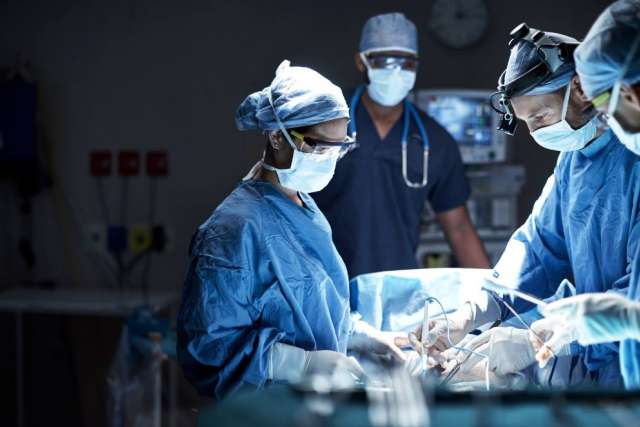Dear Doctors: My brother-in-law is 57 years old, and he is getting coronary bypass surgery. I don’t want to bother him or my sister with a lot of questions right now, but I do want to understand what is happening. Why is this surgery needed, and how is it done? Will it fix whatever is wrong?
Dear Reader: Facing major surgery is stressful and often frightening, both for the individual and for the family. It’s thoughtful of you to recognize that and to spare your brother-in-law and sister from having to make explanations at this time. It’s also possible that, by understanding both the surgery and the reasons it is needed, you’ll be better able to offer support if either of them seeks it.
Let’s start with a bit of basic anatomy. The pumping action of the heart sends oxygenated blood to all of the cells of the body. It receives its own supply of blood, also loaded with oxygen, from a network of vessels known as the coronary arteries. When someone needs bypass surgery, it means that one or more of the coronary arteries has become either narrowed or blocked. This is most often due to accumulations of a fatty, waxy substance known as plaque.
A narrowed coronary artery causes symptoms such as chest pain or discomfort, nausea, cold sweats, lightheadedness, shortness of breath, becoming easily fatigued and chronic exhaustion. Diagnosis is made with a physical exam, certain types of blood tests, stress tests and a variety of scans of the heart and coronary arteries.
Over time, decreased blood flow due to a narrowed coronary artery taxes the heart. It weakens the heart muscle, increases the risk of stroke and can lead to heart failure. This is a serious condition in which the heart is no longer able to perform well enough to maintain good health. A coronary artery that becomes completely blocked will cause a heart attack.
For some patients, a procedure known as angioplasty can be an option. In an angioplasty, a thin tube is threaded into the arterial blockage and a tiny balloon is used to press back the plaque. This is followed by the placement of a small mesh coil, known as a stent, to keep the artery open.

It’s important to understand that while this surgery can ease symptoms and lower the patient’s future risk of heart attack or stroke, it doesn’t cure coronary artery disease. Your brother-in-law will be expected to make and maintain lifestyle changes, including adopting a healthy diet, doing regular exercise and not smoking.
(Send your questions to [email protected], or write: Ask the Doctors, c/o UCLA Health Sciences Media Relations, 10960 Wilshire Blvd., Suite 1955, Los Angeles, CA, 90024. Owing to the volume of mail, personal replies cannot be provided.)





